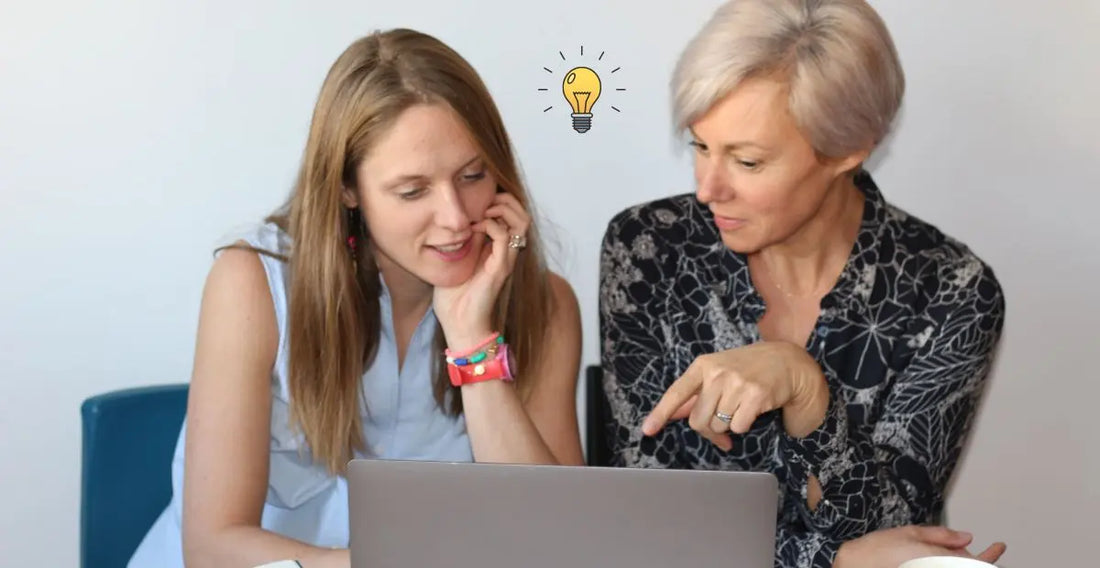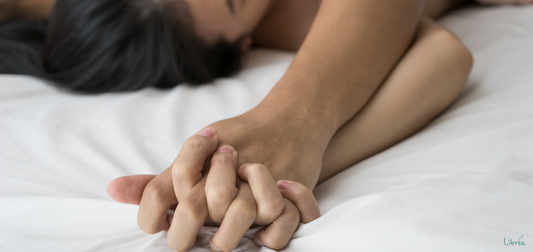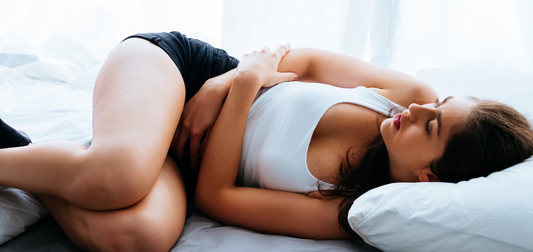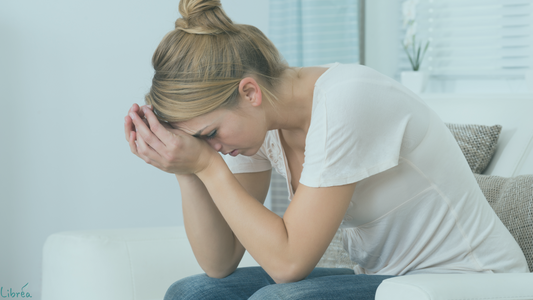
How start-ups are innovating feminine intimate hygiene care
Share
The first disposable absorbent appeared on the market in the late 1880s, and the tampon was not invented until the early 1930s by physician and entrepreneur Earle Haas. Although these were true revolutionary inventions in their time, innovations in feminine hygiene products did not stop there. And that's good news, considering women spend a combined seven years of their lives needing such products.
Today, innovators are tackling challenges such as period poverty (lack of access to menstrual and education products) and waste from single-use feminine hygiene products. Some of the innovations that have hit the market in recent years include sustainable menstrual products such as reusable tampons, menstrual underwear, menstrual cups and organic tampons.
Anouk Ragot, co-founder of Romanian-based menstrual underwear brand Libréa, describes the radical change brought about by innovations in feminine intimate hygiene:
"We encourage women and new generations. We offer them an alternative to traditional period products designed to help them feel good, comfortable and ultimately free in a healthy and sustainable way. We usually don't really feel good about ourselves when we're on our period. In Romanian, we also use a word to highlight this - "pe stop" - which means we stop what we are doing to manage the whole situation. It doesn't have to be this way. After a client of ours tried on period panties, she told us that if she could change this part of her life—the habits she learned from her mother—then she was more confident that she could change almost everything. "
Why we need sustainable menstrual products
 Our menstrual panties fight against menstrual precariousness and act for sustainable development.
Our menstrual panties fight against menstrual precariousness and act for sustainable development.
The two big issues in the world of feminine hygiene are "period poverty" and the environmental impact of menstrual products and their packaging, which affects the FMCG sector at a high level, explains Anouk.
"Period poverty" refers to the lack of access to feminine hygiene products and facilities, waste management and education. This problem affects 500 million people worldwide. In Romania, 1 million girls and women of reproductive potential are affected by period poverty due to the lack of access to the information and products they need to manage this important part of their lives safely and with dignity.
One factor is cost. Globally, an average-income woman spends $10 a month on menstrual products. For a woman with two daughters, the cost can be as high as $50 a month. And that doesn't include period medications like acne treatments and pain relievers.
The second issue concerns the environmental impact of feminine hygiene products. On average, we use 25 pads per cycle, resulting in around 12,000 tampons being used in our lifetime, the vast majority of which end up in landfills… where they stay for hundreds of years.
This is where sustainable menstrual products come into play. The first modern menstrual cups as we know them today were invented in the late 1930s.
And then the first menstrual underwear hit the US market seven years ago, with huge success among women who decided to feel free, says Anouk.
Previously a niche product, the global menstrual underwear market is expected to grow at 15.8% CAGR between 2020 and 2030.
Start-ups are innovating the care of feminine intimate hygiene
Case study: Libréa, Romania – Sustainable menstrual panties

Co-founders of Libréa, Laurence Monier Blondiaux and Anouk Ragot.
When Anouk met her co-founder, Laurence Monier Blondiaux, schools had mostly been closed for a year and a half due to COVID.
“Our activities began to slow down and we decided to put them on hold, focusing on our children and families. This accelerated our desire to engage and take concrete action to improve women's everyday lives,” she says.
The first time Anouk tried menstrual panties was in France, as she wanted to take care of herself before Christmas. It was love at first sight:
"The first time I tried them, I thought it was a revolutionary solution. Laurence also had experience with them through her daughter; at 11, you don't want to go through puberty turning to products made from plastic, which aren't easy to use and also aren't very shiny."
Libréa menstrual panties are an all-in-one solution. The magic comes from a four-layer stitched complex made up of a special wicking cotton layer, an absorbent layer, a waterproof layer and a bamboo fiber outer layer.
“Comfort was in our top 3 priorities, along with reliability and affordability. 60% of survey respondents told us they adjust their schedule during their cycle. They don't exercise or avoid going to the beach because their grooming routine is too complicated or they just don't feel well. We dispute that."
Another important factor in the design of the product was sustainability. First of all, you can use and reuse them for a long time, up to 3 years. Then, the founders wanted to make the product locally to encourage economic activity and reduce some of the waste, including transportation. The materials come regionally, from Romania, Turkey, Italy or Belgium.
Looking at the reason why they chose Romania for the headquarters of Libréa, Anouk tells us that it is a very good place to start a brand. There are fewer barriers in Romania than in France for putting an idea into practice. Things happen quickly and simply.
"We have only invested our own capital so far. We decided to go with the Minimum Viable Product (MVP) mindset, start with the essentials, move fast and improve our product along the way. In this way we are constantly challenged to improve ourselves," says Anouk.
Keeping customers close to the brand is another key aspect of the business, allowing them to capture real feedback and improve correctly and intelligently:
"Last week, a customer told me that she had problems with the product. We discussed and understood that the problem was the size. So I sent her another size to see if that could fix the problem. And indeed it was solved. That's why we don't have many products in stock. We are close to a "made to order" model.
If we see a slight improvement we can make in the design, then we don't want to be stuck with a lot of products made the old way. We do everything ourselves and can change and adapt with agility.
” Since the launch of the brand in October 2021 in 4 months, Libréa has sold approximately 500 menstrual panties. As the company grows, the founders plan to develop new variants of sustainable underwear, as well as attract external investment and add new distribution channels such as pharmacy and retail.”
#Libréagurl
Interview conducted by The Recursive newspaper on February 10, 2022






